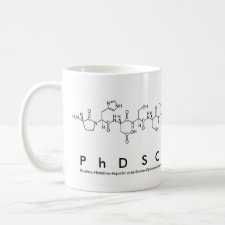
Authors: He JF, Zhu QH, Deng QY
Article Title: Investigation of imprinting parameters and their recognition nature for quinine-molecularly imprinted polymers.
Publication date: 2007
Journal: Spectrochimica Acta Part A-Molecular and Biomolecular Spctroscopy
Volume: 67
Issue: (5)
Page numbers: 1297-1305.
DOI: 10.1016/j.saa.2006.09.040
Alternative URL: http://www.sciencedirect.com/science/article/B6VNG-4M4004B-7/2/89606a16ffc3eb4fb5cc1872b50f39d8
Abstract: A series of molecularly imprinted polymers (MIPs) was prepared using quinine as the template molecules by bulk polymerization. The presence of monomer-template solution complexes in non-covalent MIPs systems has been verified by both fluorescence and UV-vis spectrometric detection. The influence of different synthetic conditions (porogen, functional monomer, cross-linkers, initiation methods, monomer-template ratio, etc.) on recognition properties of the polymers was investigated. Scatchard analysis revealed that two classes of binding sites were formed in the imprinted polymer. The corresponding dissociation constants were estimated to be 45.00 μmol l-1 and 1.42 mmol l-1, respectively, by utilizing a multi-site recognition model. The binding characteristics of the imprinted polymers were explored in various solvents using equilibrium binding experiments. In the organic media, results suggested that polar interactions (hydrogen bonding, ionic interactions, etc.) between acidic monomer/polymer and template molecules were mainly responsible for the recognition, whereas in aqueous media, hydrophobic interactions had a remarkable non-specific contribution to the overall binding. The specificity of MIP was evaluated by rebinding the other structurally similar compounds. The results indicated that the imprinted polymers exhibited an excellent stereo-selectivity toward quinine
Template and target information: quinine
Author keywords: Molecularly imprinted polymers, quinine, spectrometric detection, Synthetic conditions, binding characteristics



Join the Society for Molecular Imprinting

New items RSS feed
Sign-up for e-mail updates:
Choose between receiving an occasional newsletter or more frequent e-mail alerts.
Click here to go to the sign-up page.
Is your name elemental or peptidic? Enter your name and find out by clicking either of the buttons below!
Other products you may like:
 MIPdatabase
MIPdatabase









